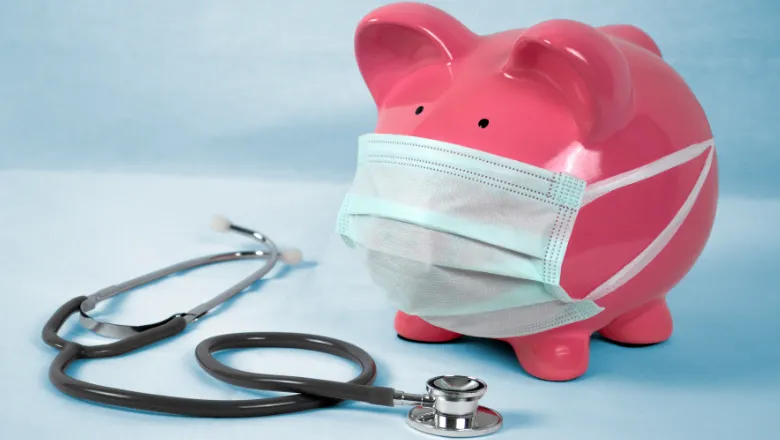In addition to the suffering of patients and their families that delays in diagnosis and treatment during national lockdowns have created, the tragic loss of life has grave economic consequences. Patient backlogs only magnify this situation. Our data adds crucial evidence for direct investment into cancer services now to prevent further excess deaths and even greater economic impact.
Dr Ajay Aggarwal, Consultant Clinical Oncologist
08 June 2021
Researchers examine the cost of cancer during the COVID-19 pandemic
Understanding the economic impact of cancer within society is essential to help policymakers make rational choices and weigh up risks and benefits when it comes to health systems and investments.

During the COVID-19 pandemic, the negative impact of shutting down routine healthcare practices was rarely assessed.
Researchers from the School of Cancer & Pharmaceutical Sciences, led by Dr Ajay Aggarwal and Professor Richard Sullivan, have been investigating this to gain a better understanding of the complete picture. Specifically, their focus has been on examining the significant backlogs in the management of cancer patients, as well as those who have yet to be diagnosed.
Their current research focuses on four major cancer types that make up 40% of the cancer burden across England during the first wave of the pandemic. Through analysing economic data, the findings revealed that delays in diagnosis during this time would cost the U.K. over £100 million over the next five years. If this is extrapolated to include all cancer types and the whole of the U.K as well as subsequent potential pandemic waves, the economic impact would of course be even more severe.
Over the past year, the team have published some of the seminal studies of the impact of non-pharmaceutical interventions to control COVID-19, including the impact of delays in diagnosis. They have also published the first paper showing the start of stage shifts (cancers presenting at a more advanced stage). This fits into a wider body of work from the Cancer and Covid Taskforce that seeks to reinforce the huge impact that the COVID-19 pandemic has had on cancer care.
Their work has had major influence on policymakers and made a significant political case for investing in the recovery of cancer services. Professor Sullivan and his team are working with colleague across Europe to replicate this in other countries.
This is further data to support the need to keep routine healthcare open and functioning smoothly even when drastic national lockdowns are needed to control pandemics. The failure to do this is not an inconvenience that can be caught up with later. For cancer patients, it leads to later stage disease, greater treatment costs and excess mortality. There are also grave consequences for both families and society.
Professor Richard Sullivan, Director at Institute of Cancer Policy.

